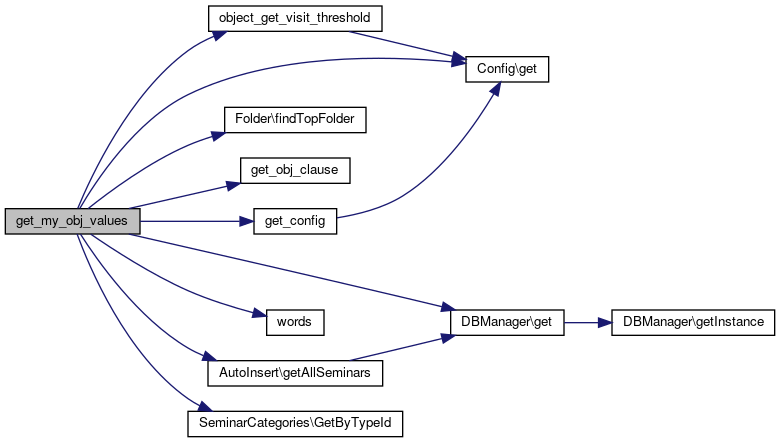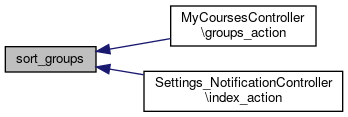Functions | |
| get_group_names ($group_field, $groups) | |
| sort_groups ($group_field, &$groups) | |
| correct_group_sem_number (&$groups, &$my_obj) | |
| add_sem_name (&$my_obj) | |
| fill_groups (&$groups, $group_key, $group_entry) | |
| get_obj_clause ($table_name, $range_field, $count_field, $if_clause, $type=false, $add_fields=false, $add_on=false, $object_field=false, $user_id=NULL, $max_field='chdate') | |
| get_my_obj_values (&$my_obj, $user_id) | |
| getValidGroupingFields () | |
Function Documentation
◆ add_sem_name()
| add_sem_name | ( | & | $my_obj | ) |
- Parameters
-
unknown_type $my_obj

◆ correct_group_sem_number()
| correct_group_sem_number | ( | & | $groups, |
| & | $my_obj | ||
| ) |
- Parameters
-
unknown_type $groups unknown_type $my_obj


◆ fill_groups()
| fill_groups | ( | & | $groups, |
| $group_key, | |||
| $group_entry | |||
| ) |
- Parameters
-
unknown_type $groups unknown_type $group_key unknown_type $group_entry

◆ get_group_names()
| get_group_names | ( | $group_field, | |
| $groups | |||
| ) |
- Parameters
-
unknown_type $group_field unknown_type $groups


◆ get_my_obj_values()
| get_my_obj_values | ( | & | $my_obj, |
| $user_id | |||
| ) |
- Parameters
-
array $my_obj : array of seminare-objects with index of seminar_id string $user_id


◆ get_obj_clause()
| get_obj_clause | ( | $table_name, | |
| $range_field, | |||
| $count_field, | |||
| $if_clause, | |||
$type = false, |
|||
$add_fields = false, |
|||
$add_on = false, |
|||
$object_field = false, |
|||
$user_id = NULL, |
|||
$max_field = 'chdate' |
|||
| ) |
This function generates a query to fetch information like (at least) last modification date (last_modified) number of entries (count) number of new entries (neue) from object_user_visits for a specific module, denoted by $type. You pass a table-name ($table_name), where the entries for the module are stored, the name of the field working as foreign-key ($range_field), the field to count the number of (new) entries ($count_field). The if-clause ($if_clause) is used to check if there are any new entries at all. With $add_fields you can specify some further fields to be fetched in the query With $add_on you can add some conditions to hold when joining object_user_visits. $object_field is the name of field in object_user_visits to join with
- Parameters
-
string $table_name the name of the db-table where the entries for the module denoted by $type are stored in string $range_field name of the field working as foreign-key, when joining object_user_visits string $count_field field to count the (new) entries on string $if_clause an sql-if-clause, used to check if there are any new entries at all string $type string $add_fields some further fields to be fetched in the query string $add_on some further conditions to hold when joining object_user_visits string $object_field default: my.object_id. string $user_id default: current user, user-id of user the query is built for string $max_field default: chdate, denotes the field used to find out the last_modified-timestamp
- Returns
- string the query to operate on objects_user_visits

◆ getValidGroupingFields()
| getValidGroupingFields | ( | ) |
This function returns all valid fields that may be used for course grouping in "My Courses".
- Returns
- array All fields that may be specified for course grouping

◆ sort_groups()
| sort_groups | ( | $group_field, | |
| & | $groups | ||
| ) |
- Parameters
-
unknown_type $group_field unknown_type $groups


